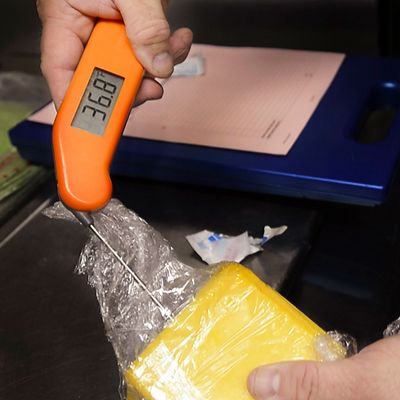
Thanks to Chipotle’s apparently immortal food-safety debacle, there’s suddenly all of this concern over keeping food safe, but not many brilliant plans for doing it. Chicago, though, is seemingly on to something with a clever high-tech program that lets inspectors catch health violators early on: It’s created a special algorithm that’s doing a bang-up job predicting which of the city’s 16,000 restaurants everybody would benefit from the Department of Public Health visiting — like, before customers start barfing.
The idea is incredibly simple, according to The Atlantic’s CityLab:
In 2014, Chicago’s Department of Innovation and Technology started sifting through publicly available city data and built an algorithm to predict which restaurants were most likely to be in violation of health codes, based on the characteristics of previously recorded violations. The program generated a ranked list of which establishments the inspectors should look at first.
From this data, they created a system that’s minimally disruptive (inspectors get assignments the same way, and restaurants still just wait to be inspected) and quite effective: Developers say the algorithm on average finds violations seven and a half days earlier than inspectors can, which could be the difference between just chucking some scuzzy produce and giving 234 people GI problems. The tech involved was the only tricky part, but the team made it super easy for other cities to replicate their approach by publishing the programming code on GitHub.
Interestingly, almost nobody else has shown interest in adopting it. So far, Maryland’s Montgomery County, just outside D.C., is the only other government entity giving it a try. When CityLab asked about its success, county officials over there — whose 500-square-mile rural area couldn’t be less like Chicago — effusively praised the program for identifying 27 percent more violations in the first month, and finding them three days sooner. The foot-dragging elsewhere could have its reasons, from not knowing Chicago’s project exists to the fact that many municipalities don’t have a resident big-data expert or chief digital officer who can oversee adapting the algorithm. But many do (like New York), so maybe it’s time a few gave it a hard look.
[CityLab]




